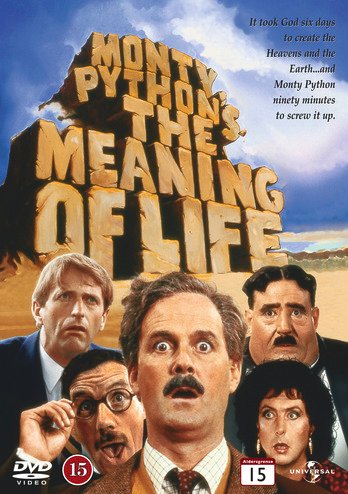The Indisputable Presence of Purpose

The preliminary inquiry of where humankind fits in the universe has been pondered throughout history, serving as a foundation for the emergence of societies and cultures. Humanity’s desire for a critical role can take a form of religion, philosophy, or emotional responses. The expression of one’s purpose could be expressed in a religious manner, by serving God and improving the quality of life in the world. Similar to the religious perspective, the anthropological perspective notes that many idealistic constructs relate to human welfare, a common theme throughout history. Emotional responses also serve to describe personal properties/necessities, as people have a tendency to fear a lack of purpose.
The popularity of theism implies that a definite purpose in life is a categorical imperative for one’s tranquility. Statistically, there are 4,200 religions worldwide claiming to be the holders of absolute truth, with a majority of the population identifying as theists. Each religion manages to address pagan faiths as falsehoods, and claim to be the only ideology that contradicts the imagination of man. Despite the existence of beliefs that often contradict other religions, there still seems to be a common link which merely states that every individual has a purpose to pursue during one’s lifetime. For instance, in Christianity, humans are perceived as the regents of God and must assume the role of being “the stewards of the Earth,” while obeying God’s commandments. Similarly, Buddhism influenced a greater recognition of immaterial wealth in western cultures, by expressing their goal to end suffering and achieve Nirvana. In Islam, Muslims believe that, the meaning of life is to submit to God’s will. Nevertheless, it is a fact that the most influential religions in the world express a firm belief in a purpose and entailed a set of achievements which served to improve the quality of life for its followers. Regardless of popularity, religious beliefs are not necessarily the sole holders of self-realization, as secular philosophies also recognize the existence of a purpose.
Generally, there seems to be a correlating pattern among people to fear a lack of purpose, which is thought to render their work meaningless or unimportant. Theoretically, Jean-Paul Sartre’s existentialism cannot abolish the concept of a meaningful life, as abstract concepts may refer to individual ideas. An existentialist believes that the purpose of life is to exercise one’s “freedom of choice,” while simultaneously respecting other people’s freedom. Critics have a preliminary distaste for existentialism and argue that atheism denies of the existence of responsibility and purpose, along with moral values such as respect. Retrospectively, one’s need to preserve and safeguard a purpose is understandable. In my early days of high school, my academic recession was contingent upon the lack of developed skills, leading me to give up on work and focus on video games. On the long run, focusing mainly on pleasure without reaching towards an end goal does not bring happiness. Although my idea of the meaning of life is subjective, some observed principles are subconsciously followed.
Many ideologies affirm that humans have a natural, universal, craving that drives them towards a specific end. Before the Common Era, Aristotle emphasized his philosophy of virtue ethics, stating that community is the key to happiness and that rationality is the basis of human nature. According to Aristotle, the end is to develop virtues, which help strengthen one’s relationship with other people while bringing the most good to the most considerable amount of people. Similarly, the teachings of Epicurus, (341-270BCE) emphasized the need to promote a cooperative community, as the means of the end, which is happiness. Epicurus stated that our purpose is to have pleasure for the sake of enjoyment, and outlined that friends, satisfying work, and serenity are essential for a fulfilling life. Centuries later, Karl Marx compiled the communist manifesto, which stated that “the further back we go into history, the more the individual and, therefore, the / producing individual seems to depend on and belong to a large whole”. (Images of the Human 259) Karl Marx noted that the industrial revolution has provided us with the capability to produce provisions much faster and more efficiently, hence stating that the next stage in human societies would be to address the issues tyrannizing the Proletariat, (Working class) and create a communal, classless society. Marxism influenced the rise of social political parties, and even got Pope John Paul II to echo the criticism of Capitalism in his encyclical: Laborem Exercens. The objective to improve the quality of life is slowly gaining popularity and parallels with the teachings of religious institutions.
Although the meaning of life is an abstract concept, it’s impossible for a person to live without a defined goal. Humans are naturally inclined to pursue a goal/fulfill a purpose, whether the outlet may be religious, philosophical or emotional. The public distaste, rather than disbelief, for Jean-Paul Sartre’s idea of a personal purpose, demonstrates that a contradictory view on purpose may threaten people’s emotional composure. Universally, the goal of serving one another seems to be a common theme. A clear majority of philosophies show that there must be a meaning to life, whether the purpose is considered objective or subjective.

This is a post made by Victor S... Hope someone like it!
Congratulations @epix101! You received a personal award!
Click here to view your Board
Downvoting a post can decrease pending rewards and make it less visible. Common reasons:
Submit
Congratulations @epix101! You received a personal award!
You can view your badges on your Steem Board and compare to others on the Steem Ranking
Do not miss the last post from @steemitboard:
Vote for @Steemitboard as a witness to get one more award and increased upvotes!
Downvoting a post can decrease pending rewards and make it less visible. Common reasons:
Submit